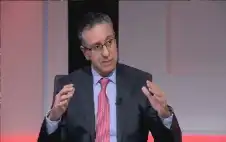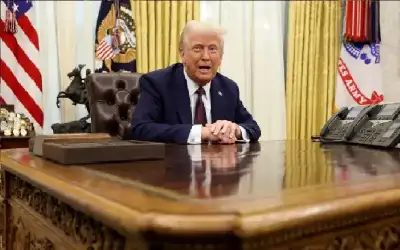Standing by Lebanon and feeling bitter
نيسان ـ نشر في 2016-02-24 الساعة 13:05
MOHAMMED FAHAD AL-HARTHI
arabnews
Saudis have a trait which is an old and inherited Arab one of not pointing out the support they give to others lest it looks like bragging. Unfortunately, the political realities of international relations have caused this to change. Thus, Saudi Arabia was forced to disclose the amount of aid to Iraq during the war in Kuwait. The numbers led to shocked amazement in Baghdad even more than in Riyadh.
Saudi Arabia and the UAE are among the biggest funders of Arab and Islamic countries. Funds from the Gulf states are special in that the states do not impose any conditions or specific agendas; they are keen that aid reaches the people and achieves the goals it was meant for.
In 2014, the Kingdom donated half-a-billion dollars to Iraq; it was described by a royal decree as humanitarian assistance to all Iraqis in painful times regardless of their sect, religion or ethnic group. The funds were delivered through the UN to the Iraqi people and that was the only condition.
Saudi Arabia’s record is one of assistance to many countries. The Kingdom has supported both north and south Yemen; it built schools, hospitals and roads. Many Yemenis realize Saudi large-heartedness; hence, it was unjust when skepticism was voiced.
Saudi Arabia has no expansionist ambitions in Yemen; on the contrary, it granted significant concessions to achieve the border agreement in 2000 which aimed to build trust between the two countries. Its position, along with that of the Gulf states, of standing with the legitimate government of Yemen, is in fact for the good of Yemeni citizens whose country and civilization was almost snatched by regional forces that aim to arouse conflicts, and exploit whatever possible in order to achieve an expansionist agenda.
In Lebanon, Saudi Arabia has historically always been a close ally; it contributed by signing the Taif Accord that stopped the civil war in Lebanon. It has also contributed to the reconstruction of the country by offering both economic and developmental support.
Saudi Arabia sent an important message of support for the sovereignty of Lebanon, rather than for specific sects or parties, when it gave $3 billion to arm the Lebanese army, and an additional billion dollars for the internal security forces.
This policy is in keeping with Saudi political ideology. Otherwise, if Saudi Arabia wanted to intervene, it would have supported arming one side against the other so its position was decisive and clear. The army and internal security forces are supposed to represent the Lebanese state. Thus, these institutions are not up for grabs by parties that aim to seize power in Lebanon.
Many Saudis are disturbed by Lebanon’s anti-Saudi attitudes in such matters as not denouncing the attacks on the Saudi missions in Tehran and Mashhad. The Iranian themselves apologized and admitted that the attacks were a huge mistake. Despite all this, the Lebanese attitude was disappointing in the Arab League as well as in the Organization of Islamic Cooperation. Not only that, but Hezbollah led an open attack against Saudi Arabia while the UAE, Bahrain and the rest of the GCC supported the Saudi position.
Why should a country provide political support and billions of dollars in aid when the recipients of that aid voice hostile statements? It is a folly to perceive the Saudis as so naive as to distribute money under such conditions. Wisdom and moderation do not mean that there are no limits to patience. It is vital to stake out a strong position. There is a popular Saudi saying: “Why should we be the side that gives the most? And why should we tolerate ingratitude?”
Observing the discussions in newspaper articles and on social media shows the frustration of Saudis as a result of these events. Any intelligent government is sensitive to the attitudes and feelings of its people. It is wrong to believe that rhetoric and old Arab customs can justify inaction on the part of Saudi Arabia when the situation was in no way normal.
Some Arabs do not understand that careful decision-making is a Saudi trait; when needed, leaders take strong positions. The most outstanding example is Operation Decisive Storm which surprised everyone, with the Iranians anticipating that the Saudi reaction would be one of protest and condemnation.
When Saudi Arabia took the decision to stop its funds, it confirmed once again that it would continue to support Lebanese citizens of all sects. The offending statements do not represent the Lebanese people. Saudis now ask many questions about the aid that goes to other countries, and they say: “If you do not want to say thank you, then at least do not stab us in the back.”





